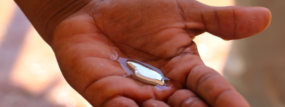Posted on 17 Apr 2013
The issue of Illicit Financial Flows (IFFS) is at the forefront of the international agenda. Governments worldwide are joining forces to combat money laundering, tax evasion and international bribery, which make up the bulk of IFFs. Although the exact scale of the problem is unknown, IFFs have devastating effects on developing countries. Instead of attempting to quantify precisely what is by definition a hidden activity, now is the time to determine where public funds should best be targeted to make the most impact.
The G8 and G20 are urging countries to take action on several fronts: strengthening their anti-money laundering regimes, enforcing greater transparency of company ownership, and supporting efforts to trace, freeze and recover stolen assets. They are also committed to automatic exchange of information to tackle tax evasion. And given the interconnectedness of our economies, global compliance is required to tackle many of today’s challenges.
Governments are committed to taking action on these issues by ratifying existing global standards and by being active members of relevant administering bodies. Measuring OECD Responses to Illicit Financial Flows from Developing Countries is the first report to measure how well countries are performing in their fight against IFFs. It draws on public data describing the situation in these policy areas and the role of donor agencies. The report is a key output of the OECD Strategy on Development, which was launched in 2012, and provides a unique comparison of performance on some of these global standards.



